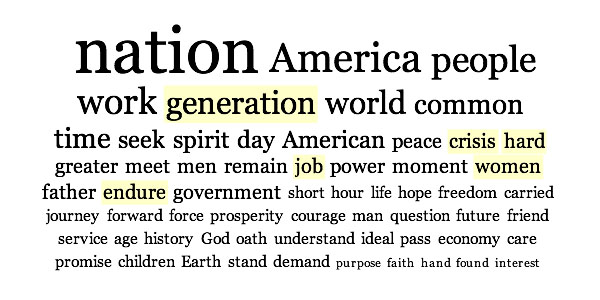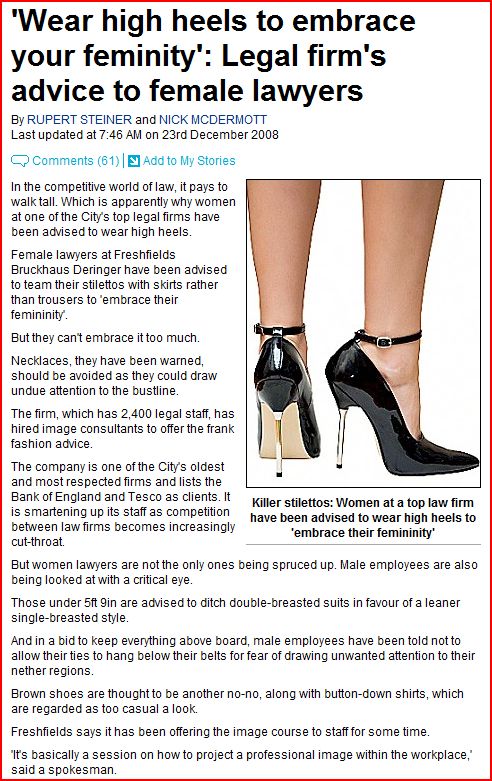The New York Times put together an interactive graphic showing, for each U.S. President’s in augural speech, a word cloud with the most used words, with larger words being used more frequently than smaller words. Click here to see the whole thing and look at any specific speech.
Here is Obama’s speech. The words in yellow (“generation,” “crisis,” “hard,” “job,” “women,” and “endure) were used more by Obama than in the average inaugural speech:
This is interesting because it helps us see what is being emphasized by different President’s at different times, and also how language changes. For example, for George Washington in 1789, the word “God” was not among his most used He does, however, use the word “pecuniary” (of or relating to money) a lot.
Via infosthetics.









